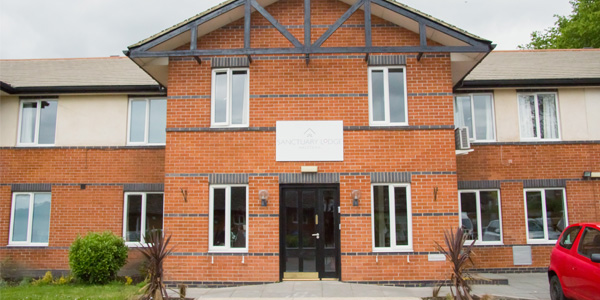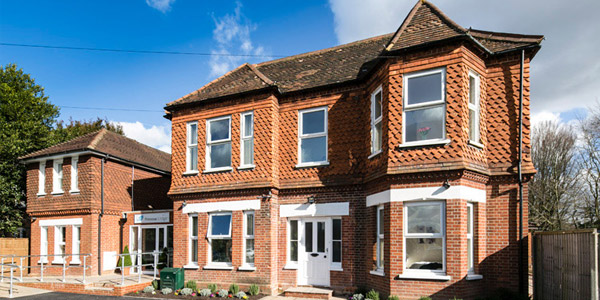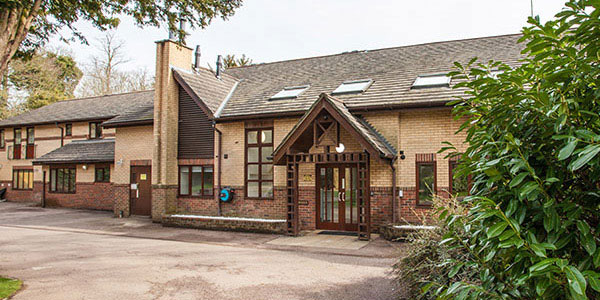Alcohol & Drug Rehab in Hillingdon
Nowhere in the UK is untouched by the ravages of addiction – and unfortunately the houses and streets of Hillingdon are the scenes of a great deal of suffering as the abuse of alcohol, illegal drugs and prescription medicines takes a terrible toll. However, there is help for those prepared to reach out for it: in recent years an array of facilities have been set up to treat addiction and set addicts back on the path to happiness and success. If you or a loved one are struggling with this dreadful illness, don’t give up hope: read on to find out how rehab can save your life.
If you or a loved one are suffering from alcohol or drug addiction in the Hillingdon, Uxbridge, Middlesex or west London area then do not hesitate to call us today. We are the UK’s leading addiction resource guide and can help you find the right treatment for you. Our Admissions Team are experienced and will find you local and affordable treatment – Call us today!

Liberty House Clinic is a fully furbished detox and rehabilitation facility…
- Private
- Holistic Treatment
- Award Winning
- Residential
Featured Rehabs
Sanctuary Lodge is a state of the art detox and rehabilitation facility, se…
At Primrose Lodge we genuinely care that our patients make a full recovery …
Banbury Lodge is a private UKAT rehab facility based in Banbury, Oxfordshir…
-
Multi-Purpose Rm,
Ground Floor (left at reception), Hillingdon Hospital Mental Health Unit, 3-4
UB8 1QW0 review- 12 Step
- Group Setting
- Free
- Outpatient
- Load More
Drug & Alcohol Rehab Services in London
- A
- B
- C
- D
- E
- F
- G
- H
- I
- J
- K
- L
- M
- N
- O
- P
- Q
- R
- S
- T
- U
- V
- W
- X
- Y
- Z
What Is Rehab?
Rehab – also known as “residential rehabilitation” – is widely considered to be the most effective means of effectively treating addiction, in terms of its ability to provide the greatest chance of long-term recovery. Rehab tackles both the immediate challenge of physical dependency and the longer-term one of psychological addiction, in one holistic combination of medicine, therapy, fitness and dietary regimes, and more; it allows clients to understand the origins of their addiction and therefore to work to ensure they do not make similar mistakes going forward.

Rehab (the term describes both the process of treatment at a dedicated facility and such a facility itself) typically offers two main phases of treatment (treating physical and psychological addictions respectively) within one individualised treatment plan for each client: a detoxification (“detox”) and withdrawal phase, to cleanse a client’s system of substances of abuse; and a therapy phase wherein clients are equipped with psychological defence mechanisms against relapse. Rehab offers access to highly qualified medical professionals with a great understanding of addiction and its associated challenges, within tranquil, attractive, secure and confidential settings perfectly conducive to physical and mental healing.
How Can I Get Someone into Rehab?
In general, the NHS provides a high standard of care, including in its treatment of addiction. Unfortunately, however, demand is growing (especially in very densely populated areas such as Hillingdon) and resources are being stretched to breaking point: waiting times are often distressingly long, and time never ceases to be a factor when dealing with addiction because of the constant risk that the addict will suffer a fatal overdose or fall victim to accident or an act of violence in which substance abuse plays a key role.
As a result, if you are suffering from an addiction and are ready to acknowledge your condition and reach out for help, it is important not to waste any more time before investigating private options.
It’s important to recognise that it is near impossible to treat somebody for an addiction who is not willing to be treated; if someone you love is struggling with an addiction, and you are conscious that for the aforementioned reasons time is a factor, you may despair that they are not showing themselves ready to own up to their addiction and ask for help.
We can assist at this point, by engaging with you to discuss arranging an intervention or other tactics that you can try with the intention of getting them to acknowledge their condition – while if you yourself are struggling with addiction and are ready for help we can assist you in making the necessary preparations ahead of a stay in rehab. Either way, do not let more time go by: call us today to speak with an addiction specialist about what private options are at your disposal.
Advantages of Private Rehab
As mentioned above, rehab provides the perfect combination of security, tranquillity and confidentiality within which to focus fully upon recovery away from the distractions and temptations of the environment within which you have fallen into the addiction trap – and away also, of course, from the substance/s of abuse to which you have become addicted.
A highly skilled and experienced medical team will assist you throughout your stay in rehab, from your initial assessment, into detox (during which you will be monitored for your safety, and medication may be prescribed to alleviate as fully as possible any withdrawal symptoms you may experience) and subsequently into therapy.
A broad variety of therapy models (in both group and one-to-one settings) are available at rehab, aimed at uncovering the fundamental reasons for your addiction (and addressing them) and providing you with the necessary psychological defence mechanisms against relapse. Your individual treatment plan will encompass bespoke dietary and fitness regimes, while you will also have access to an array of other facilities (which will vary from one rehab to another and according to the level of treatment which you have requested).
Because recovery is by no means complete at the end of a stay in rehab – it is instead a lifelong process requiring constant dedication and diligence – good rehab providers offer free aftercare (typically for up to a year following your stay) to continue supporting you during this next crucial phase of your recovery.
What Does Rehab Cost in Hillingdon?
The cost of private rehab will vary from one facility to another depending on the nature of the treatment programs offered and of the standard of the facility in question (for example, luxury rehabs can logically be expected to cost more). Roughly speaking, standard costs in or near Hillingdon range from £5,500 to £11,000 per month, although the cheapest treatment may be obtained for as little as £834 per week.
NHS Addiction Treatment Options Hillingdon
Some people do not feel that a private rehab is an appropriate option for them. If you believe yourself to be in this category, for whatever reason, it is vital that you do not give up hope: there are a large number of NHS and charity resources in and near Hillingdon which can help you (or a loved one) overcome addiction. Talk to your GP about which of these may be open to you and how you might access them.
Advantages of NHS Treatment
Unsurprisingly, the primary advantage of NHS treatment is financial: NHS services are free at the point of delivery while as discussed above private rehab does come at a cost (though it is worth bearing in mind that this cost pales into insignificance against the potential costs – in all senses – of not getting help).
Another advantage of the NHS is its nationwide coverage; it can offer geographical proximity compared with some rehabs found a long way from Hillingdon. Moreover, the NHS provides high-quality services, although these services, as noted earlier, are experiencing extremely high demand and quality does vary from one trust to another.
Addiction Support Groups
Several support group organisations operate in the UK aimed at helping addicts. Support groups are made up of people who are themselves recovering addicts, who come together at regular meetings for mutual support in the form of advice on how to resist relapse and overcome the challenges; solidarity and sympathy; and providing simple companionship which can be so important. Typically, attendance at support groups is free, with the only criterion for participating being a commitment to leading a life free of substance abuse.
The most famous support group organisation, and the one on which most others are modelled, is Alcoholics Anonymous (AA) which was founded in 1935 and runs on a 12-step programme of personal and spiritual development, with one of the steps being a recognition that a higher power – such as God – can assist with an alcoholic’s recovery. Narcotics Anonymous (NA), founded in 1953 and based directly upon the AA model, is the second-largest support group organisation worldwide and caters to recovering drug addicts specifically.
In a similar vein, but supporting those recovering from addictions to specific substances, are Cocaine Anonymous (CA), Heroin Anonymous (HA), Marijuana Anonymous (MA) and Crystal Meth Anonymous (CMA), all of which operate 12-step programmes. There are also support groups such as Al-Anon and Nar-Anon assisting the families and friends of addicts which typically hold meetings alongside those for the addicts themselves.
Support groups typically meet weekly, though each local chapter is managed independently and meeting times and venues are subject to change. To find information on meetings in or near Hillingdon, see the relevant websites:
Alcoholics Anonymous; Narcotics Anonymous; Cocaine Anonymous; Heroin Anonymous; Marijuana Anonymous; Crystal Meth Anonymous.
Types of Counselling

Although it is available to anyone with the means, many recovering addicts – especially those with particularly busy schedules – benefit from individual counselling, which can be provided following the completion of a treatment programme at rehab or elsewhere as a supplement to that programme, but which is usually not considered an effective alternative to such a programme. Individual counselling is also sometimes utilised as a means of managing an addiction in advance of engaging in proper treatment.
Like regular psychotherapists, private addiction counsellors offer a huge variety of different approaches to therapy, and operate across the country; they are typically seen by private appointment on an ongoing basis – often weekly – charging by appointment. Access is usually limited to predefined working hours, although some councillors do make themselves available on an emergency basis.
Reaching Hillingdon in London
The borough of Hillingdon is found in Greater London. Its neighbouring areas are Harrow, Ealing and Hounslow, and it has 22 wards and districts.
The Hillingdon wards are: Barnhill, Botwell, Brunel, Cavendish, Charville, Eastcote and East Ruislip, Harefield, Heathrow Villages (including Harmondsworth, Sipson and Harlington), Hillingdon East, Ickenham, Manor, Northwood Hills, Northwood, Pinkwell, South Ruislip, Townfield, Uxbridge North, Uxbridge South, West Drayton, West Ruislip, Yeading, Yiewsley. As Hillingdon is one of the biggest London boroughs area-wise, it may be a good idea to consider getting a friend to drive you to your rehab’s location. There are a number of useful large roads to use for quicker access – the A40, the Great South-West Road, Bath Road, M4, and the A3113. At the same time, if you consider using public transportation, the local stations are serviced by both National Rail and the London Underground. Here are some useful stations you can alight at depending on where in the borough your chosen addiction service is found: Heathrow Terminals 1,2,3 tube station, as well as the Terminal4 and Terminal 5 tube stations (Terminal 5 also has a railway station), Hatton Cross, Uxbridge, and West Drayton railways station.
There are multiple opportunities for your relaxing rehab-focused outings. They may be part of the holistic therapies some rehabs in the area provide. Found in the borough are the Eastcote House Gardens, Newyears Green parks, the Ruislip Woods National Nature Reserve, and Stockley Park.
How to Get to Liberty House Clinic from Hillingdon
Liberty House Clinic is a fully furbished 18-bed drug and alcohol detox and rehabilitation facility in a peaceful, picturesque suburban setting in the heart of Luton. Its large, spacious grounds are the ideal place in which to address the key questions at the heart of recovery from addiction, and to embrace its fully comprehensive rehabilitation programme focused on mental, physical and spiritual well-being.
To get to Luton from Hillingdon by road head out on the A4o and continue on the M40 to junction 1A; take the M25 north and at junction 21 exit onto the M1. Stay on that motorway until junction 10; then take the A1081 towards London Road; follow signage to the town centre.
For those preferring to travel by train, Luton is served by Thameslink; from Uxbridge head to Kings Cross St Pancras on the underground and then ascend to London St Pancras to take a train direct to Luton.
Liberty House Clinic
220 Old Bedford Road
Luton
Bedfordshire
LU2 7HP





